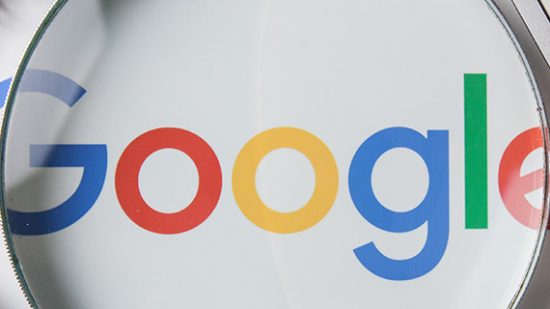
US prosecutors opened a landmark antitrust trial against Google on Tuesday, accusing the tech giant of “spending billions to operate an illegal monopoly” that had harmed every computer and mobile device user in the United States.
During opening proceedings before a federal judge in Washington, lawyers from the US Department of Justice painted a picture of a company that had obtained its pole position among search engines on browsers and smartphones through exclusive deals with wireless carriers and phone makers that had effectively blocked competitors from gaining scale and market share, to the detriment of US consumers.
“This case is about the future of the internet and whether Google’s search engine will ever face meaningful competition,” Kenneth Dintzer, a DOJ lawyer, said in court. He claimed that Google pays more than $US10 billion ($15.6 billion) per year for these privileged positions, and added that the company produces a “feedback loop” that “always turns to Google’s advantage.”
John Schmidtlein, Google’s top litigator, defended the company’s search engine noting that “there are lots of ways users access the web other than default search engines, and people use them all the time.” He went on to challenge the idea that Apple was ever forced to make Google the default search engine on their devices, saying “Apple repeatedly chose Google as the default because Apple believed it was the best experience for its users.”
Read more: Google’s New ‘Bard’ AI Calls Google A Monopoly
Microsoft and Apple have both made following the case closely, as it is the biggest antitrust case in the United States in a quarter century and could have far-reaching implications. According to the DOJ, Google’s accusations resonates with the case filed against Microsoft in 1998, in which it was determined that ‘monopolization of the software industry was deemed to harm consumer choice, innovation and competition’.
The multi-week trial will determine whether Google’s search engine cannot outmatch its rivals. If the DOJ is successful in its case, it could cause Google to lose focus and struggle to adapt, or to be forced to stop paying Apple and other companies to make it the default search engine. The trial will feature witness testimony from Google CEO Sundar Pichai, as well as other senior executives or former employees from Google, Apple, Microsoft and Samsung.
The trial also mirrors a separate lawsuit made by a group of states — led by Colorado — against Google’s search engine. In the state’s complaint, they argued that the way Google structures its search results page harms competition by prioritizing the company’s own apps and services, to the detriment of web pages, links, reviews and content from other third-party sites.
However, the judge presiding over the case, Judge Amit Mehta, dismissed the states’ claims in a ruling last month, saying they had not done enough to demonstrate a trial was necessary.
The trial marks the culmination of two ongoing lawsuits against Google that started during the Trump administration, and its results will likely act as a bellwether for the Biden administration’s more aggressive antitrust agenda. In January, it launched another antitrust suit against Google focusing on the company’s advertising business.
The effects of Google’s alleged misconduct are far-reaching, according to DOJ lawyer Kenneth Dintzer: “This case is about the future of the internet, and whether Google’s search engine will ever face meaningful competition.”
Source: 9 News
Featured News
Big Tech Braces for Potential Changes Under a Second Trump Presidency
Nov 6, 2024 by
CPI
Trump’s Potential Shift in US Antitrust Policy Raises Questions for Big Tech and Mergers
Nov 6, 2024 by
CPI
EU Set to Fine Apple in First Major Enforcement of Digital Markets Act
Nov 5, 2024 by
CPI
Six Indicted in Federal Bid-Rigging Schemes Involving Government IT Contracts
Nov 5, 2024 by
CPI
Ireland Secures First €3 Billion Apple Tax Payment, Boosting Exchequer Funds
Nov 5, 2024 by
CPI
Antitrust Mix by CPI
Antitrust Chronicle® – Remedies Revisited
Oct 30, 2024 by
CPI
Fixing the Fix: Updating Policy on Merger Remedies
Oct 30, 2024 by
CPI
Methodology Matters: The 2017 FTC Remedies Study
Oct 30, 2024 by
CPI
U.S. v. AT&T: Five Lessons for Vertical Merger Enforcement
Oct 30, 2024 by
CPI
The Search for Antitrust Remedies in Tech Leads Beyond Antitrust
Oct 30, 2024 by
CPI